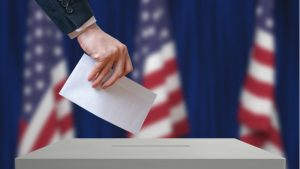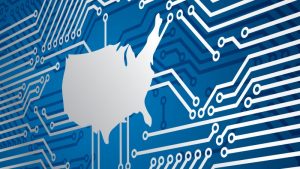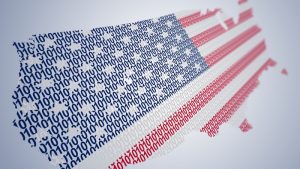On Wednesday, Philadelphia’s city commissioners approved the purchase of a new voting system that should be in place for the 2020 election cycle. The new system, according to a statement from the state government, has “updated standards for security, auditability, and accessibility.”
The National Association of State Chief Information Officers (NASCIO) released its annual list of Federal advocacy priorities today which prominently feature cybersecurity regulations and state CIO/CISO roles in Federal government efforts.
Joshua Spence, West Virginia’s chief technology officer, is pushing for an additional $4.5 million in funding to launch a program that would allow his office to compare and analyze the cybersecurity risks currently facing state agencies. The bill Spence is lobbying for, called the Secure WV Act, would enable legislators to get a more in-depth understanding of the state’s current risks and how best to mitigate them in the future.
State and local governments are starting to make progress–albeit slowly–on adopting latest-generation email authentication protocols.
The National Association of State Chief Information Officers (NASCIO) today released its ninth annual state CIO survey. Since the survey comes just ahead of an election cycle that will likely cause significant turnover among states’ most senior technology officials, NASCIO–in partnership with Grant Thornton and CompTIA–approached the survey in a new way. NASCIO explained that it used this year’s survey as a “means for the current cadre of state CIOs to offer advice to a new generation of technology leaders that may soon be taking office.”
The National Association of State Chief Information Officers (NASCIO) announced yesterday that James Collins, CIO of Delaware, was elected president of the organization. Collins succeeds James “Bo” Reese, CIO of Oklahoma. NASCIO announced election results ahead of its annual conference, which began today in San Diego.
The Senate Commerce, Science, and Transportation Committee heard testimony today detailing the workings of data privacy laws in Europe and California–specifically the European Union’s General Data Protection Regulation (GDPR) and the California Consumer Privacy Act (CCPA)–amid a growing groundswell for Congress to work on a national data privacy law for the U.S.
Gov. Jerry Brown on Sept. 28 signed into law S.B. 327, which will ban companies from selling Internet-connected devices with weak or default passwords, such as “Password” or “1234567.” Instead, beginning on Jan. 1, 2020, all devices must have a “preprogrammed password [that] is unique to each device manufactured.” A primary concern with weak pre-programmed passwords is that users don’t change them to strong, unique passwords after purchasing the device.
California Governor Jerry Brown on Sept. 29 signed S.B. 1001 into law. The legislation prohibits automated accounts–colloquially known as bots–from pretending to be human when attempting to “incentivize a purchase or sale of goods or services in a commercial transaction or to influence a vote in an election.”
California’s Democratic Governor Jerry Brown on Sunday signed S.B. 822 , which restores in the state Obama-era Federal net neutrality laws that were gutted by the Federal Communications Commission (FCC) earlier this year.












